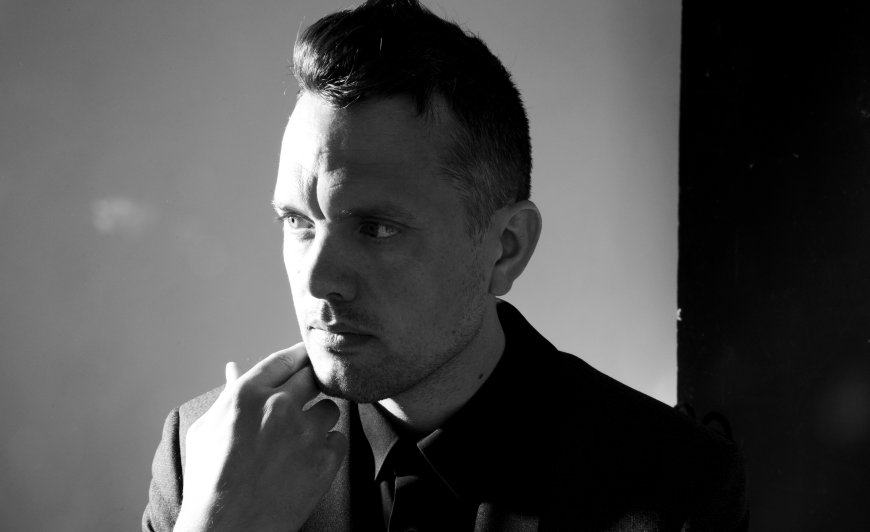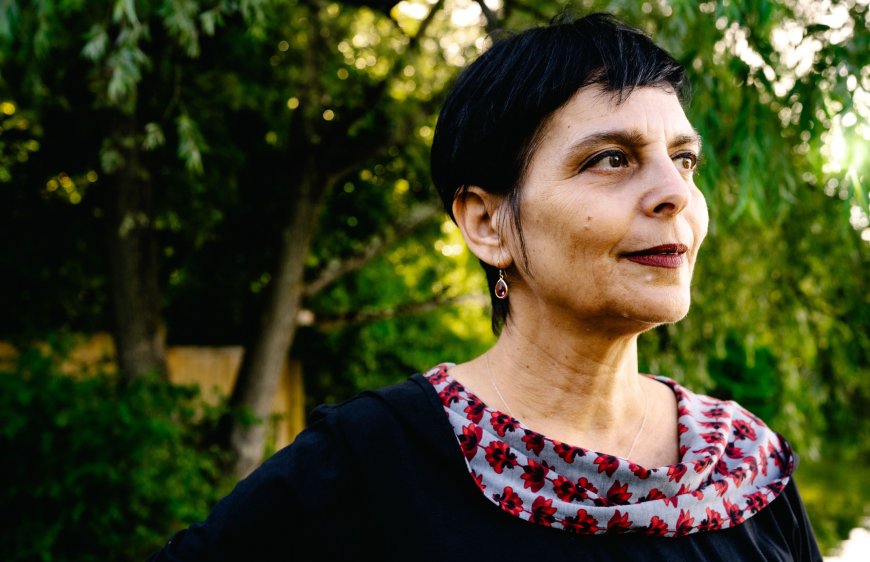
Remember the Los Angeles Philharmonic’s Reykjavík Festival, a stylistically ambiguous, conceptually outlandish, often illuminating one-of-a-kind project unveiled in 2017? A lot of that was the handiwork of Icelandic composer, conductor, and curator Daníel Bjarnason — and all three of his talents were on display again, albeit in just one evening, on Tuesday, April 29, at Walt Disney Concert Hall.
This time, Bjarnason’s project, presented on the LA Phil’s long-running Green Umbrella series, was “Vocal Dimensions,” an innocent-looking title for an assortment of pieces delineating how various species of the human voice can be twisted, altered, and enhanced to suit the music.
In putting this program together, Bjarnason enhanced the resident LA Phil New Music Group with a few 21st-century luminaries. Composer Nico Muhly was there, contributing piano accompaniment to his song “New-Made Tongue” and sitting in elsewhere. Composer Kate Soper unleashed her tour de force for voice and flute, Only the Words Themselves Mean What They Say, with herself as the voice. Violinist Pekka Kuusisto was recruited to head the strings in a performance of Bjarnason’s song cycle Hands on Me.

Still, the one piece that really hit the mark and said something bold about where we are in the troubled spring of 2025 was less about the guest stars. It was the world premiere of Chaya Czernowin’s NO! A Lament for the Innocent, conceived during the first Trump administration, when national immigration policy involved separating babies from their mothers. Czernowin finally composed the work last year, when Trump was running again. “I am a mother,” she writes. “I am a human being. … With the state of the world right now, one can’t help but constantly feel an internal scream: NO!”
The piece delivers exactly what Czernowin promises. The Disney Hall stage accommodated two orchestras of similar composition — one on the left led by Bjarnason, one on the right by Luis Castillo-Briceño — each with its own vocalist. Both ensembles started out with a single sustained note, built to a crescendo on a cluster, and then kept on rolling and raging with ever-greater intensity. At first, the vocals by Eliza Bagg and Sofia Jernberg lacked words, as if the horror left them symbolically speechless, then desperately breathing heavily. Eventually, the two orchestras dropped out, the two singers yelled, “No!” and the words finally came tumbling out as follows: “Don’t take my child away / Don’t take my child / Don’t / No.”
The only possible reaction to this blast of righteous anger is silence — which is what happened before applause broke out on Tuesday. If there were any undercover ICE agents in the audience, they would have been advised to head for the exits.
Elsewhere, the concert offered several demonstrations of how the human voice can be put to all kinds of strange and not-so-strange ends. Bagg furthered display her versatility, first in Muhly’s neoromantic song, maintaining a pure sustained line, and then in the late Jóhann Jóhannsson’s pretty, chill-out, lonesome-mood orchestral miniature Odi et Amo, submitting to a hollow electronic distortion of her timbre.
Soper’s piece was a zany encyclopedia of extended vocal tricks, paired with — and toward the end mimicking — the equally nutso antics of Rachel Beetz on flute and bass flute. I would have used the words “screwball comedy” to describe the performance if Soper hadn’t beaten me to it in her program note. There’s a video of the work — complete with score — on YouTube, but the Disney Hall rendition had a live theatricality and ferociousness that made it all the more entertaining.
Finally, there was the U.S. premiere of Hands on Me, by far the most expansive piece of the night at a bit over 40 minutes. The lyrics by Royce Vavrek were mostly unintelligible through the amplification. Written for an 11-piece group including electric guitar (Jeff Parker), a sparingly deployed drum kit (Beth Goodfellow), and frequent solo opportunities for violin (Kuusisto), the eight songs are predominately inward in mood (the somewhat militant sixth song being the main exception). They were sung in a subdued pop-styled voice by Mariam Wallentin. Yet I found my attention wandering in the last few songs, perhaps wrung out by the drama of Czernowin’s primal scream of a piece or by Bjarnason’s placid, distant atmosphere — stretched a little too thinly this time.




